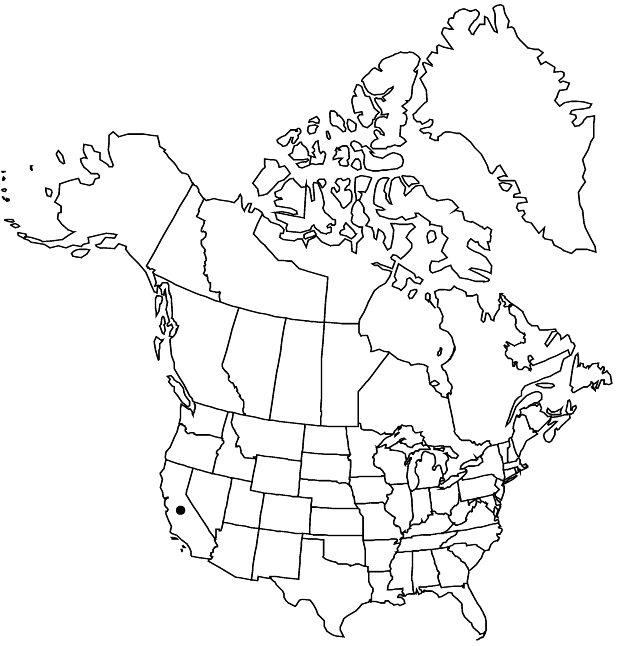Difference between revisions of "Arctostaphylos glandulosa subsp. mollis"
Madroño 19: 205. 1968,.
FNA>Volume Importer |
FNA>Volume Importer |
||
| Line 6: | Line 6: | ||
|place=19: 205. 1968, | |place=19: 205. 1968, | ||
}} | }} | ||
| − | |basionyms={{Treatment/ID/ | + | |basionyms={{Treatment/ID/Basionym |
|name=Arctostaphylos glandulosa var. mollis | |name=Arctostaphylos glandulosa var. mollis | ||
|authority=J. E. Adams | |authority=J. E. Adams | ||
| + | |publication_title=J. Elisha Mitchell Sci. Soc. | ||
| + | |publication_place=56: 50. 1940 | ||
}} | }} | ||
|synonyms={{Treatment/ID/Synonym | |synonyms={{Treatment/ID/Synonym | ||
| Line 29: | Line 31: | ||
|distribution=Calif. | |distribution=Calif. | ||
|discussion=<p>Subspecies mollis is widespread throughout the Transverse Range. Plants in the western portion of the range have adaxial leaf surfaces somewhat lustrous and with substantially fewer stomata than the abaxial surface.</p><!-- | |discussion=<p>Subspecies mollis is widespread throughout the Transverse Range. Plants in the western portion of the range have adaxial leaf surfaces somewhat lustrous and with substantially fewer stomata than the abaxial surface.</p><!-- | ||
| − | --><p>Although similar to <i>Arctostaphylos</i> ×campbelliae, J. E. Keeley et al. (2007) determined that <i></i>subsp.<i> mollis</i> is more in the range of stomatal distribution in <i>A. glandulosa</i> than <i>A. crustacea </i>subsp.<i> crustacea</i>. The relationship between these two taxa merits further investigation.</p> | + | --><p>Although similar to <i>Arctostaphylos</i> ×campbelliae, J. E. Keeley et al. (2007) determined that <i></i></i>subsp.<i><i> mollis</i> is more in the range of stomatal distribution in <i>A. glandulosa</i> than <i>A. crustacea </i>subsp.<i> crustacea</i>. The relationship between these two taxa merits further investigation.</p> |
|tables= | |tables= | ||
|references= | |references= | ||
| Line 53: | Line 55: | ||
|publication year= | |publication year= | ||
|special status= | |special status= | ||
| − | |source xml=https://jpend@bitbucket.org/aafc-mbb/fna-data-curation.git/src/ | + | |source xml=https://jpend@bitbucket.org/aafc-mbb/fna-data-curation.git/src/f6b125a955440c0872999024f038d74684f65921/coarse_grained_fna_xml/V8/V8_877.xml |
|subfamily=Ericaceae subfam. Arbutoideae | |subfamily=Ericaceae subfam. Arbutoideae | ||
|genus=Arctostaphylos | |genus=Arctostaphylos | ||
Revision as of 20:30, 24 September 2019
Twigs short-hairy and with longer, white hairs, not glandular-hairy. Leaf blades bright green, shiny, base cuneate to rounded, surfaces smooth, glabrous. Inflorescences: immature inflorescence axis densely white-hairy; bracts densely white-hairy. Pedicels densely white-hairy. Ovaries densely white-hairy. Fruits slightly depressed-globose. Stones distinct.
Phenology: Flowering winter–early spring.
Habitat: interior chaparral
Elevation: 600-2000 m
Discussion
Subspecies mollis is widespread throughout the Transverse Range. Plants in the western portion of the range have adaxial leaf surfaces somewhat lustrous and with substantially fewer stomata than the abaxial surface.
Although similar to Arctostaphylos ×campbelliae, J. E. Keeley et al. (2007) determined that subsp. mollis is more in the range of stomatal distribution in A. glandulosa than A. crustacea subsp. crustacea. The relationship between these two taxa merits further investigation.
Selected References
None.
